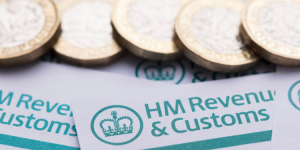
Last week, Belgium's Data Protection Authority ruled that the country must stop sharing the private financial information of Americans living in Belgium with the US Internal Revenue Service. What does this mean for American expats? Will this have an impact on their decision to settle in Belgium?
Recently, the Data Protection Authority of Belgium issued an intriguing ruling: they have decided to no longer share the private financial information of Americans residing in Belgium with the US Internal Revenue Service (IRS).
This decision highlights the Belgian government's commitment to keeping personal information private. It emphasizes that individuals have the right to keep their financial details confidential and that their data is protected. This move seemed to be much appreciated by US expats — with one article by the Washington Post coming out with the title "Belgium Comes to the Rescue of American Expats in Tax Hell".
So, does this mean American expats will be more interested in moving to Belgium?
New rules for “Accidental” US taxpayers in Belgium: Details
The Belgian government has announced that it will no longer share the data of "accidental Americans" with US tax authorities. This decision comes after Belgium's Data Protection Authority declared the transfers of this information to be unlawful.
The sharing of data was required under the US Foreign Account Tax Compliance Act (FATCA), which aims to prevent tax evasion. However, this law unintentionally affected "accidental Americans," individuals who hold US citizenship by birth but live overseas and have little connection to the US.
They argued that they ended up being unfairly caught up in a disclosure process that brought them unnecessary difficulties, such as denial of banking services and bureaucratic challenges in their home countries.
How are US expats taxed?
The United States stands as the sole major country that imposes taxes on its citizens, even if they reside permanently in other countries. The only comparable instance of such taxation exists in Eritrea, a repressive dictatorship located in the Horn of Africa, which enforces a "diaspora tax" of 2% on all emigrants.
The issue with America's citizenship-based taxation is not necessarily the potential for double taxation: expats can offset taxes paid to their host countries on their American tax returns, often resulting in no owed taxes to the IRS.
However, US expats still face burdensome filing and compliance requirements that are widely considered some of the most challenging globally. They also carry the concern of severe penalties, even for innocent errors. Moreover, Americans living overseas are required to file various additional information returns based on their assets, marital status, and other factors.
Additionally, the Foreign Account Tax Compliance Act forces banks outside the US to share the financial information of US citizens (and those holding Green Cards). This obligation is quite costly and cumbersome for the banks to deal with — which results in some banks opting not to serve American citizens. In fact, approximately 10% of expats face challenges in obtaining banking services due to the requirements imposed by FATCA.
How do American expats feel about current US tax regulations?
A recent survey by Greenback Expat Tax Services has revealed some interesting findings.
- First, a surprising 20% of US expats are actively thinking about or making plans to give up their US citizenship. What's even more interesting is that an additional 42% are open to the possibility of renouncing their citizenship in the future.
- What's more, while a majority of expats (64%) feel confident about fulfilling their US tax filing responsibilities, an even larger majority (69%) believe that they shouldn't be obligated to file US taxes while living abroad.
In this regard, Belgium may start to look like a safe haven for US expats. In a way, they may get to bypass the strict financial scrutiny they face from home while living in foreign countries.
What does the new law mean for American expats?
After receiving a complaint from a group of accidental Americans and a dual Belgian-American citizen in 2020, the Belgian Data Protection Authority conducted an investigation and concluded that the requirements for sharing information violated the General Data Protection Regulation (GDPR) of the European Union. The agency determined that the data-sharing practices did not comply with the GDPR, which is designed to protect individuals' personal data. This finding by the Data Protection Authority has prompted the government to acknowledge the violation and take necessary measures to address the issue.
This is the first instance of the FATCA (Foreign Account Tax Compliance Act) agreement being officially declared illegal. As of now, neither the US Treasury nor the Internal Revenue Service has commented on the situation.
What about the consequences?
First, American expats residing in Belgium may benefit from increased privacy protection as their financial information would not be automatically shared with the IRS. This could lead to a greater sense of privacy and control over personal financial data.
Second, this decision could make Belgium more appealing to American expats who worry about their privacy and the sharing of their financial information. This means that expats might consider moving to Belgium because they feel their personal information will be better protected. However, it's important to know that people consider many things when deciding where to move, like job opportunities, lifestyle, taxes, healthcare, and personal factors. So, while data protection is important, it's not the only thing that influences where expats choose to live.
It is important to note that US citizens and permanent residents are still required to report their worldwide income to the IRS, regardless of their place of residence. However, if the sharing of financial information is limited, it may become more difficult. This will create challenges for expats who want to fulfill their tax obligations accurately and efficiently. On the other hand, this will also create “opportunities” for those who may want to escape their tax obligations.
In summary
The recent ruling by Belgium's Data Protection Authority means that American expats living in Belgium don't have to worry about their private financial information being automatically shared with the US Internal Revenue Service anymore.
In the current expat tax environment in the United States — particularly for expats — this is big news. If 20% of expats are actually considering giving up their US citizenship for better tax conditions, relocating to Belgium doesn't seem too far-fetched at all.




















Comments
1Great article and proud to be a PA with almost 40 years in service to our profession